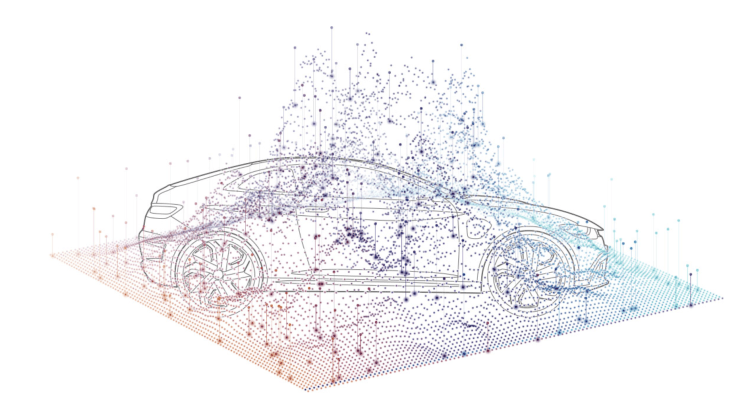Auto Software Firm Sonatus Raises $ 35 Million From Hyundai Motor Group, SAIC Capital – TechCrunch
California-based automotive software company Sonatus raised $ 35 million in a Series A round that attracted leading tech and auto industry companies including Kia Corporation of the Hyundai Motor Group, SAIC Capital and LG Electronics.
Silicon Valley VC Translink Capital led the round, along with other investors including Marvell Technology, UMC Capital and Wanxiang Group Company.
Sonatus, which was founded in 2018, intends to use the new funds to establish itself as a brand through marketing efforts, new partnerships with OEMs and expanding local teams, according to Jeff Chou. , CEO and co-founder of Sonatus. The startup says its product helps transform vehicles into “data centers on wheels” by providing the underlying infrastructure that enables the collection of big data, the running of new applications, or the addition of new functionality to the system. car.
“Basically we have two pieces of our product – one part in the vehicle and one part in the cloud, and they kind of work together,” Chou told TechCrunch. “The on-board part of our product allows the OEM to collect all the data generated by the car. So whether on a traditional [Controller Area Network] bus, whether in the main infotainment unit, or on traffic flowing over an on-board network such as Ethernet. Anything that is generated or transmitted over an on-board network is data to which we have access. And depending on what the OEM wants to collect and when they want to collect it, they can tell our software in the vehicle to do the right thing.
The cloud portion of the software connects to all vehicles where Sonatus’s underlying architecture resides and ingests all data so that it can store, analyze or expose it to the OEM’s own data scientists or to their partners.
Sonatus says its first-generation product is already in production with a leading global automaker, which will be announced in the coming weeks.
“In fact, we built the business without any investment, and we went from a few people to over 50 people,” Chou said. “And now we’re already launching and mass-producing. Our software has already been integrated into the vehicles of an equipment manufacturer and in the showrooms of its dealers.
Chou said the first incarnation of Sonatus’ product will be in a combustion engine vehicle, but the product is drivetrain independent. In fact, Chou believes vehicle electrification has been a tailwind for the company, as it prompts OEMs to rethink vehicle architecture and be more open to adopting new technologies.
One of Sonatus’s investors in this cycle, Hyundai has invested money in automotive-related technologies. The automaker has invested $ 20.5 billion (KRW 23.5 trillion) in future technologies for its vehicles, including electrification, connectivity, autonomous driving, fuel cell, UAM, AI and robotics through 2025, according to Henry Chung, SVP and director of Hyundai CRADLE Silicon Valley.
“A lot of the technology in our cars is probably 50 years old in some areas, especially on the communications side,” Chung told TechCrunch. “There are four or five decades of data center evolution in computing terms, and these technologies and approaches must now be integrated into vehicles due to the amount of data being generated, the sensors, the software algorithms that are running. . , the computing power that is now involved. They are literally super computers on wheels. We are asking vehicles to do more and consumers are also asking for faster services, so to provide these value-added services and functions, all of that requires a supporting infrastructure and that is what Sonatus essentially provides. It is long overdue.
One of the capabilities that may soon be realized in the automotive industry is Vehicle-to-Everything (V2X) technology, in which the vehicle communicates with other vehicles and the surrounding infrastructure to provide better assistance systems. driving, which could someday lead to autonomous driving. . Sonatus says it provides the architecture on which V2X can be used.
“TIt’s part of this cloud edge architecture that we offer for vehicles, but in this case the edge instead of being a data center, it’s really an edge on wheels, ”Chou said.
Sonatus’ data center, which the company claims is incredibly secure, and its architecture allow automakers to remotely add functionality, manage vehicle usage data, and resolve issues faster and more. efficiently, because it does not use over-the-air software updates that require time. and a full download. Instead, automakers can send software specific messages to apply changes in real time.
“Imagine a scenario where someone detects on the fly that there might be a problem with the brakes on vehicles they’ve shipped to North America, and they have to send an update immediately to get data in time. real on the braking and engine of some models when an accident occurs, ”Chou said. “They might say, ‘Send me information 60 seconds before the accident and 60 seconds after and I just want that information. This can be done in real time, without an OTA update. These are what we call codeless updates.
There are many use cases where OEMs will benefit from having access to so much data, especially as they continue to innovate. For Sonatus, the company wants to move in the direction where it can also collect and analyze data from automakers to perhaps use the driver behavior records in the development of autonomous technology, but Chou said that they weren’t doing anything yet. .


Comments are closed.